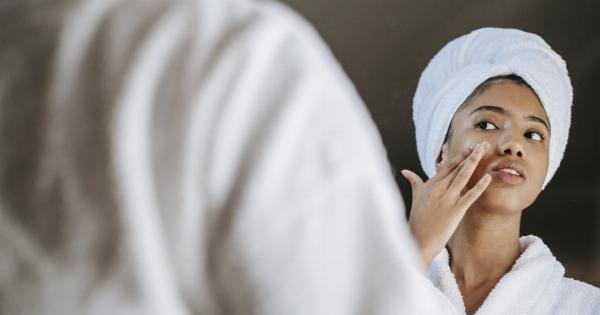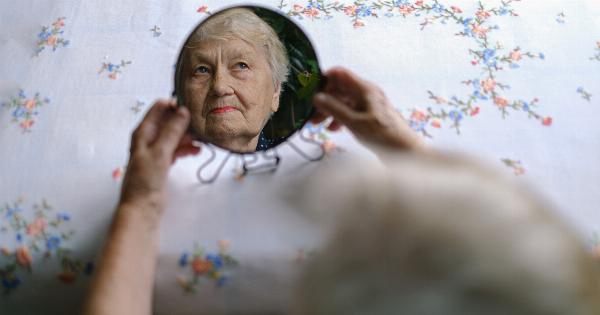As we age, many of us rely on common wisdom and age-old beliefs to navigate the process. However, it’s time to challenge these preconceived notions and shed some light on the truth.
Contrary to popular belief, aging is not necessarily a decline or a burden. In fact, it can be a time of growth, opportunity, and even rejuvenation. Let’s explore some of the misconceptions about aging and discover the reality behind them.
1. Aging Means Decline
One of the most prevalent misconceptions about aging is that it automatically means a decline in physical and cognitive abilities.
While it’s true that certain capacities may naturally diminish over time, such as eyesight or memory, aging does not equate to a complete loss of functionality. Many older individuals maintain vibrant physical and mental health well into their golden years, proving that aging can be an opportunity for growth and personal development.
2. Wrinkles Are Inevitable
Wrinkles are often associated with aging, and society tends to view them as undesirable. However, the truth is that wrinkles are a natural part of the aging process and should be celebrated as signs of a life well-lived.
While it’s perfectly acceptable to take care of one’s skin and try to maintain its elasticity, the focus should shift from trying to erase wrinkles to embracing them as symbols of wisdom and experience.
3. Older People Are Technologically Challenged
It’s a common misconception that older individuals struggle with technology and are unable to adapt to the digital world.
While it may be true that some seniors may encounter challenges when first exposed to new technologies, many older adults have embraced modern technology and use it to their advantage. From smartphones to social media, older individuals are proving that age is not a barrier to staying connected and engaged in the digital age.
4. Older People Are No Longer Able to Learn
Another misconception about aging is that older individuals are no longer capable of learning or acquiring new skills. However, numerous studies have debunked this belief, showing that individuals of all ages are capable of learning and adapting.
In fact, older adults often bring unique perspectives and life experiences that can enhance the learning process. Whether it’s picking up a new language or mastering a musical instrument, age should never be a deterrent to pursuing new knowledge.
5. Aging Means Loneliness
Loneliness is often associated with aging, with the notion that as we grow older, our social circle shrinks, and we become more isolated. While it’s true that social dynamics may change over time, aging does not automatically equate to loneliness.
In fact, older individuals often have more time to invest in nurturing relationships and building new connections. It’s essential to prioritize social interaction and maintain a robust social network, regardless of age.
6. Older People Are No Longer Productive
A common stereotype about aging is that older individuals are no longer productive members of society. However, older adults continue to contribute in significant ways, both professionally and personally.
Many individuals find newfound purpose and fulfillment during their retirement years, engaging in volunteer work, mentoring younger generations, and pursuing passion projects. Age should never define a person’s productivity or value.
7. Aging Equals Poor Mental Health
While it’s true that mental health challenges can be more prevalent among older individuals, it’s essential to dispel the myth that aging automatically means poor mental health.
With the right support and resources, older adults can maintain positive mental well-being and enjoy a fulfilling life. Prioritizing mental health through activities like exercise, social engagement, and practicing mindfulness can significantly contribute to overall well-being.
8. Older People Should Dress and Behave Conservatively
There is a societal expectation that as people age, they should dress and behave conservatively. However, personal style and self-expression should not be bound by age.
Just because someone is older does not mean they should conform to a specific dress code or societal expectations. Aging should be embraced as a time to express oneself authentically and redefine personal style, free from societal constraints.
9. Aging Makes You Less Adventurous
Many people assume that as we age, we become less adventurous and more set in our ways. However, older individuals are often more open to trying new experiences and stepping outside of their comfort zones.
Retirement offers newfound freedom and flexibility, allowing older adults to pursue their passions and explore new interests. Age should never limit one’s sense of adventure or willingness to embrace the unknown.
10. Aging Means Dependency
The idea that aging automatically leads to dependency is a significant misconception. While some individuals may require additional support as they age, many older adults maintain their independence and actively participate in their communities.
Aging should be viewed as an opportunity to live life to the fullest, rather than a stage of dependence. Society should strive to create inclusive environments that allow people of all ages to thrive.
Embracing the Truth about Aging
It’s time to challenge the outdated beliefs and misconceptions surrounding aging. Growing older does not mean a decline or a burden; rather, it presents us with new opportunities for growth, learning, and self-discovery.
Instead of viewing wrinkles, age, or experience as negatives, we should celebrate and embrace them as symbols of a life well-lived. Let’s rewrite the narrative around aging and create a culture that values and respects individuals of all ages.






























